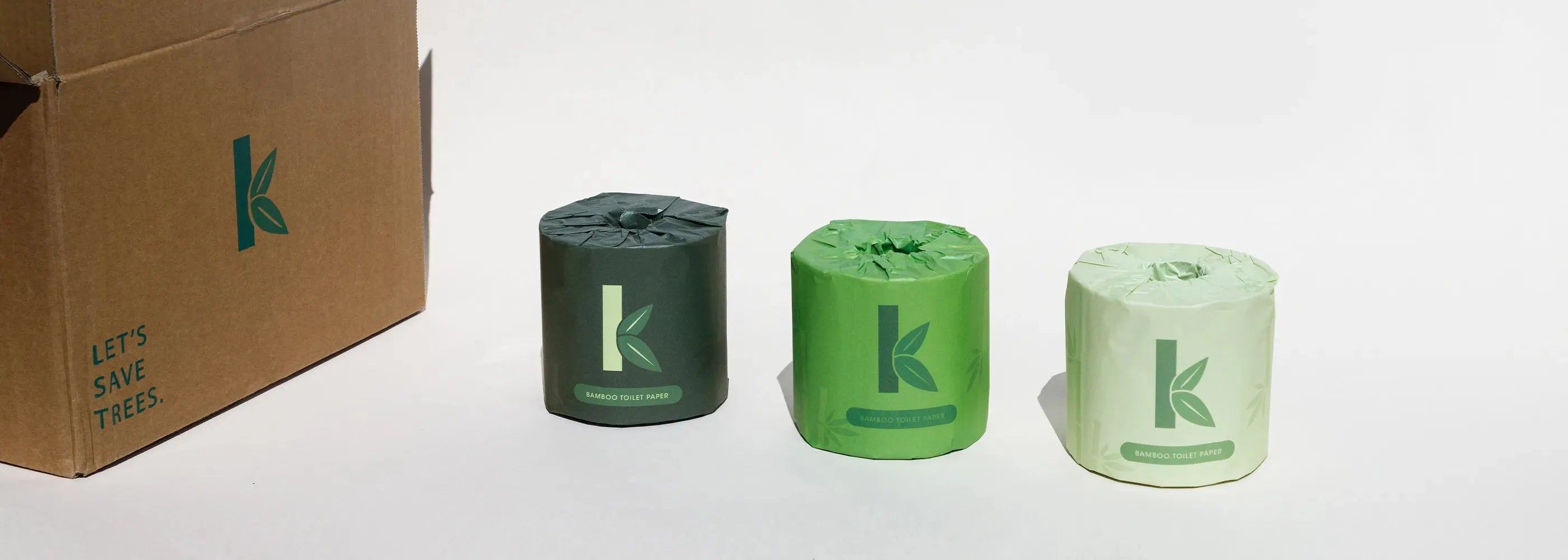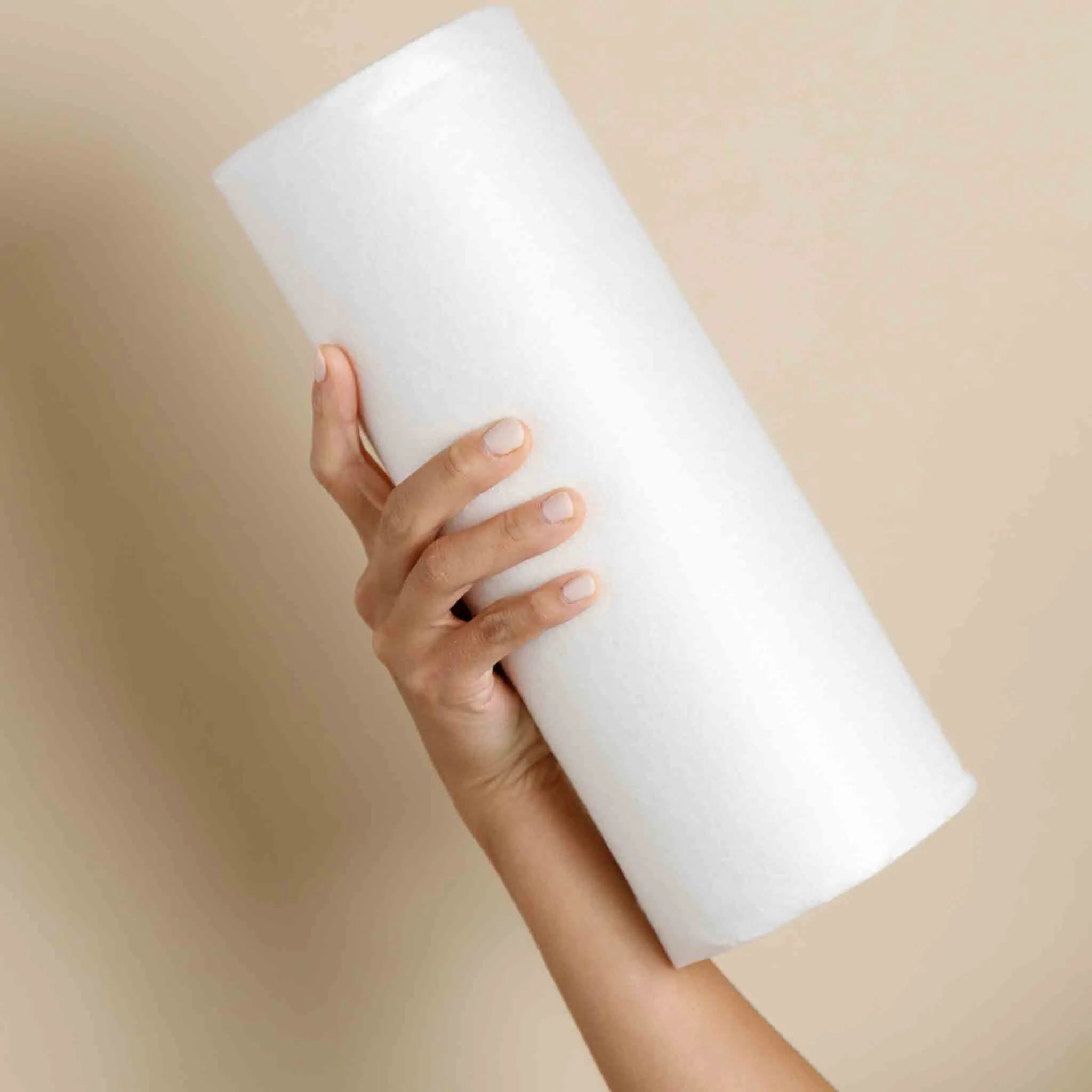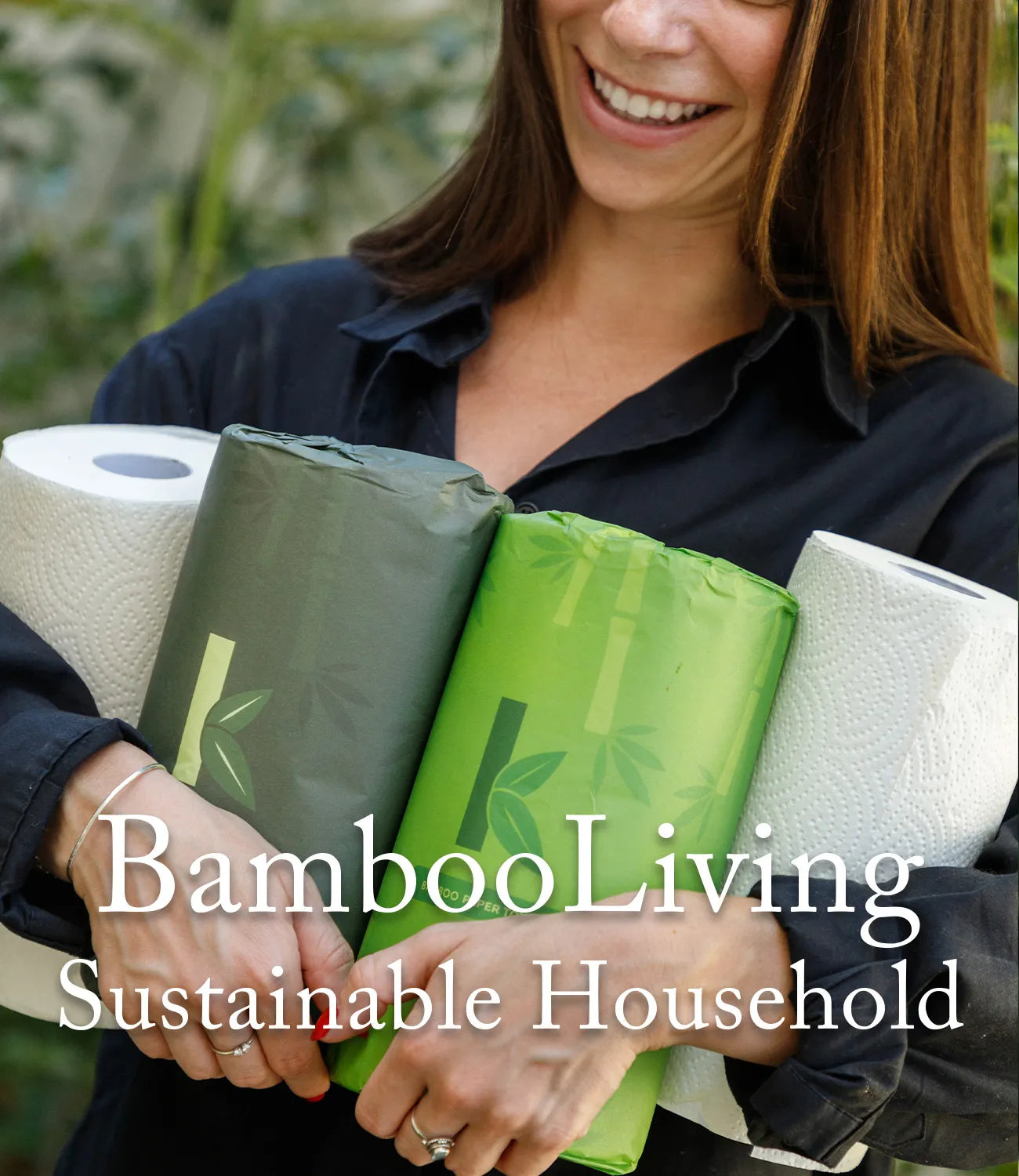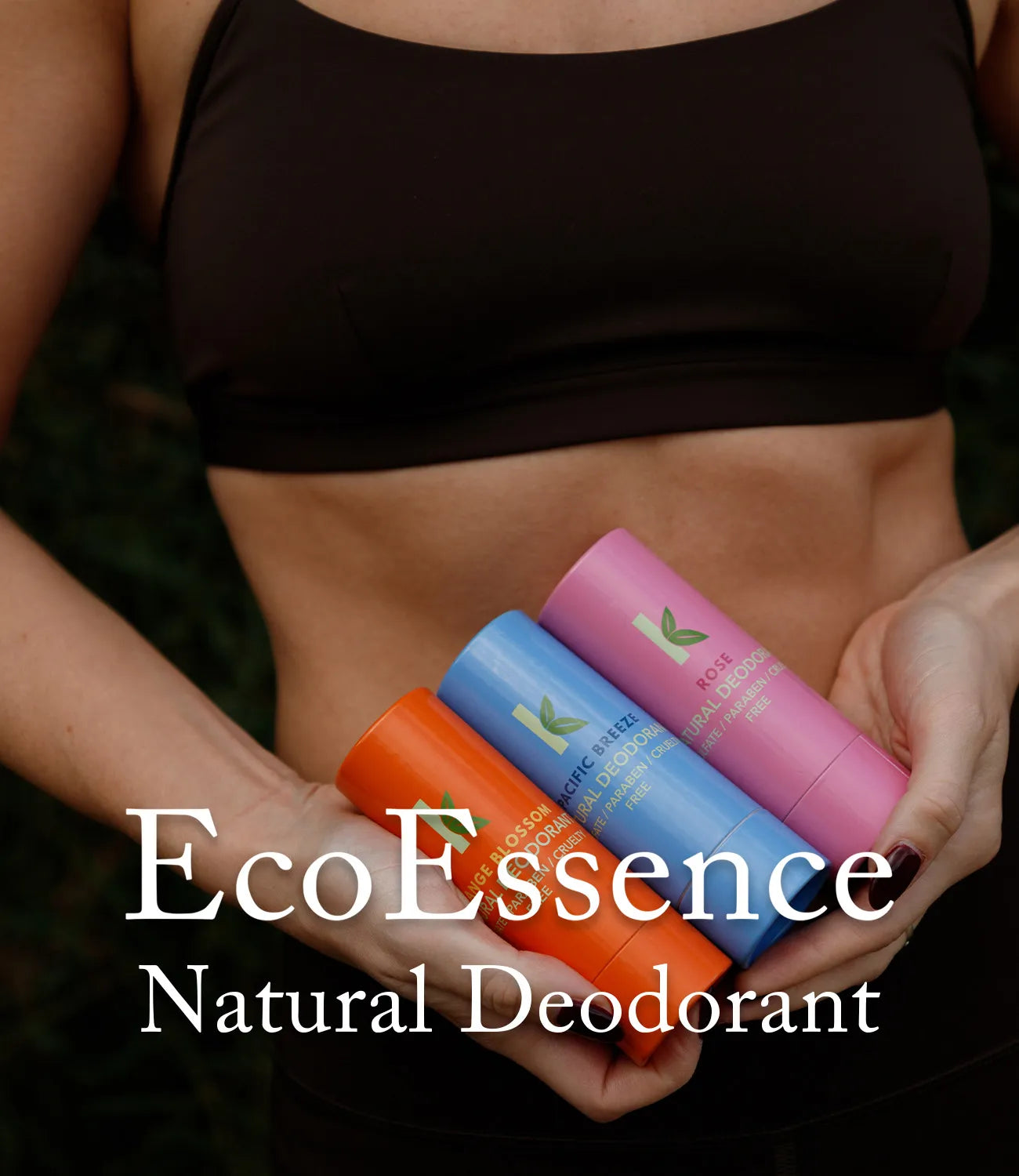Toilet Paper For Sensitive Skin
When it comes to personal care, choosing the right products can make a world of difference, especially for those with sensitive skin. While much attention is often given to skincare routines and fabric choices, one product that can significantly impact sensitive skin is toilet paper. For individuals with sensitive skin, using the wrong type of toilet paper can lead to discomfort, irritation, and even allergic reactions. This blog aims to guide you through understanding why sensitive skin requires special care and how selecting the right toilet paper can enhance comfort and wellbeing.
Sensitive skin is a common condition characterized by a heightened response to certain irritants. For some, regular toilet paper may contain ingredients or materials that can trigger skin irritation, such as fragrances, dyes, and chemicals. In this blog, we will delve into these ingredients and explain why they may be harmful, especially for those prone to sensitivity. We’ll also explore how to identify potentially irritating components on product labels, ensuring you can make informed decisions for your health.
Furthermore, we will discuss the specific features that make certain toilet papers more suitable for sensitive skin. From hypoallergenic properties to fragrance-free and dye-free options, there are several factors to consider when searching for a gentle and effective product. Softness and material choice, such as bamboo or recycled fibers, also play crucial roles in providing comfort while minimizing irritation.
To help you find the best options available, we will provide our top recommendations for toilet paper designed for sensitive skin. We’ll review various brands and products, comparing their benefits and features to help you choose the one that best suits your needs. Additionally, we’ll highlight the unique advantages of bamboo toilet paper, a popular choice for those with sensitive skin due to its natural softness, hypoallergenic nature, and eco-friendly qualities.
Beyond product recommendations, we’ll share tips on how to select the right toilet paper for sensitive skin, including what to look for when shopping and which certifications to trust. You'll also hear from real users who have switched to sensitive skin-friendly toilet paper, sharing their personal experiences and how it has positively impacted their daily routines.
Finally, for those who are particularly sensitive or looking for alternative solutions, we’ll provide insights into other methods for managing sensitive skin during bathroom use, such as using bidets or exploring reusable cloth options. We’ll also address frequently asked questions to clear up any concerns you might have.
By the end of this blog, you'll have a comprehensive understanding of why toilet paper choice matters for sensitive skin and be equipped with the knowledge to make the best decision for your health and comfort. Let's get started on the journey to finding the perfect toilet paper that meets your sensitive skin needs.
Understanding Sensitive Skin
When it comes to selecting the right toilet paper for sensitive skin, it's essential first to understand what sensitive skin actually is and why certain products can cause irritation or discomfort. Sensitive skin is not a medical diagnosis but rather a condition where the skin is more prone to reactions from external factors, including personal care products. This heightened sensitivity can make everyday products, like toilet paper, a potential source of irritation.
What is Sensitive Skin?
Sensitive skin refers to skin that is more reactive than normal. Individuals with sensitive skin often experience discomfort, such as stinging, burning, redness, or itching, in response to various stimuli that typically wouldn't bother others. These reactions can occur due to a variety of factors, including environmental elements (like sun or wind), skincare products, or even certain fabrics. Sensitive skin can be a temporary condition triggered by external factors or a more chronic issue associated with underlying conditions like eczema, psoriasis, or dermatitis.
Sensitive skin is often characterized by a weakened skin barrier. This means that the skin’s outermost layer, which is supposed to protect against irritants, allergens, and bacteria, does not function as effectively as it should. As a result, irritants that come into contact with the skin can more easily penetrate and cause inflammation or other adverse reactions. This is particularly relevant when it comes to toilet paper, a product that comes into contact with some of the body’s most delicate and sensitive areas.
Common Symptoms and Reactions to Regular Toilet Paper
For those with sensitive skin, the choice of toilet paper can make a significant difference in comfort and skin health. Common symptoms and reactions to regular toilet paper can vary but often include:
- Redness and Irritation: One of the most immediate reactions to unsuitable toilet paper is redness and irritation in the area of contact. This can be caused by friction from rough paper or by certain additives like dyes and fragrances, which can act as irritants to sensitive skin.
- Itching and Burning Sensations: Another common symptom is a persistent itch or burning sensation after using toilet paper. This can occur when the skin reacts to chemicals such as bleach, which is often used to whiten conventional toilet paper. The skin’s heightened sensitivity means these chemicals can trigger an inflammatory response.
- Dryness and Flaking: Some toilet papers can strip moisture from the skin, especially if they are not designed with added lotions or moisturizing elements. This dryness can lead to flaking and discomfort, exacerbating any existing sensitivity.
- Allergic Reactions: In some cases, sensitive skin may react to certain allergens found in conventional toilet paper. These can include perfumes, preservatives, or other chemicals used in the manufacturing process. Allergic reactions can range from mild redness to more severe rashes or hives.
- Contact Dermatitis: Prolonged exposure to irritants in toilet paper can lead to contact dermatitis, a type of skin inflammation characterized by red, itchy, and sometimes blistering skin. This condition can be particularly uncomfortable and may require medical treatment if severe.
Understanding the unique needs of sensitive skin is the first step in choosing the right toilet paper. By recognizing common symptoms and being aware of potential irritants, individuals with sensitive skin can make informed choices to enhance comfort and protect their skin's health. In the following sections, we will explore how to identify skin-friendly toilet paper options and what to look for when shopping to avoid these common issues.
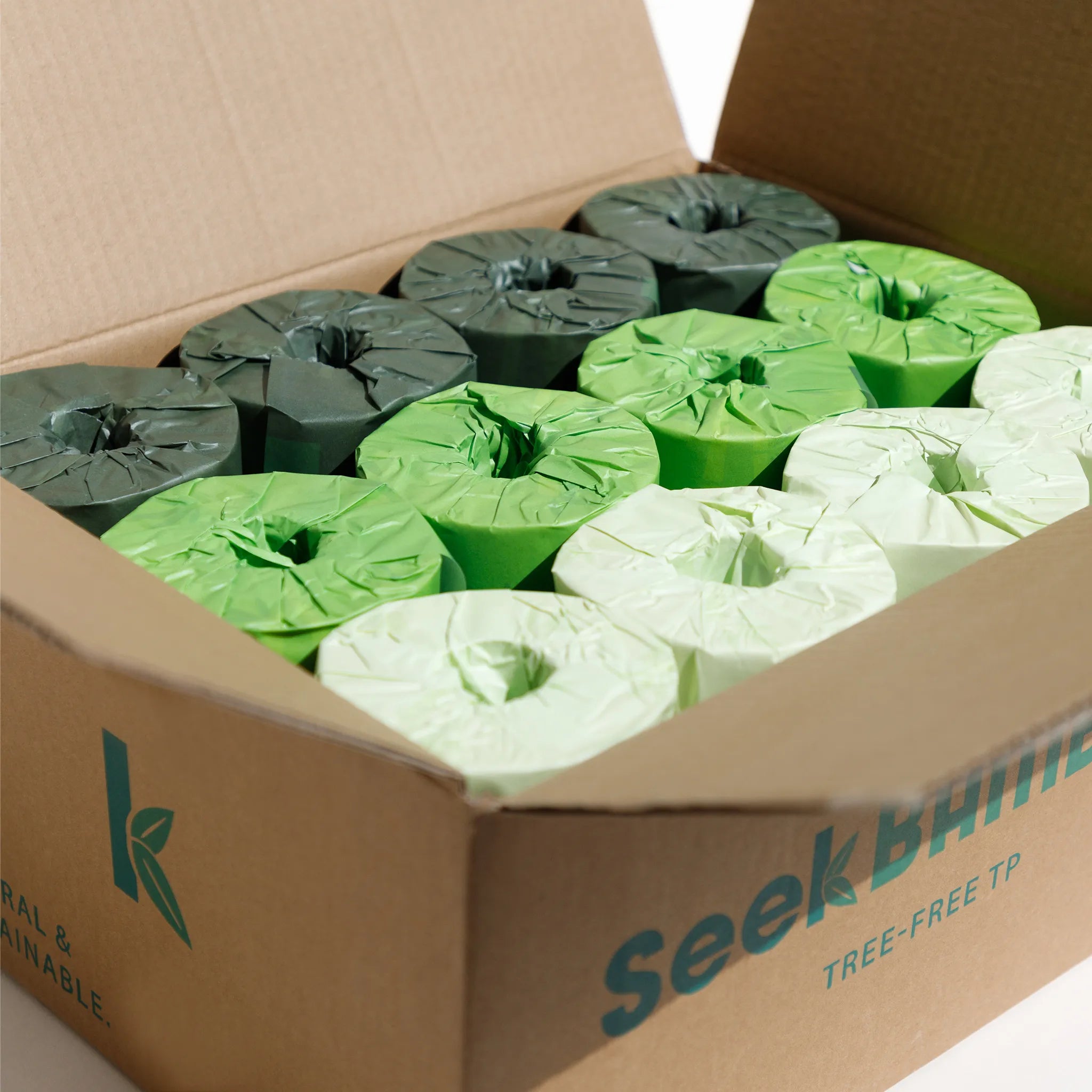

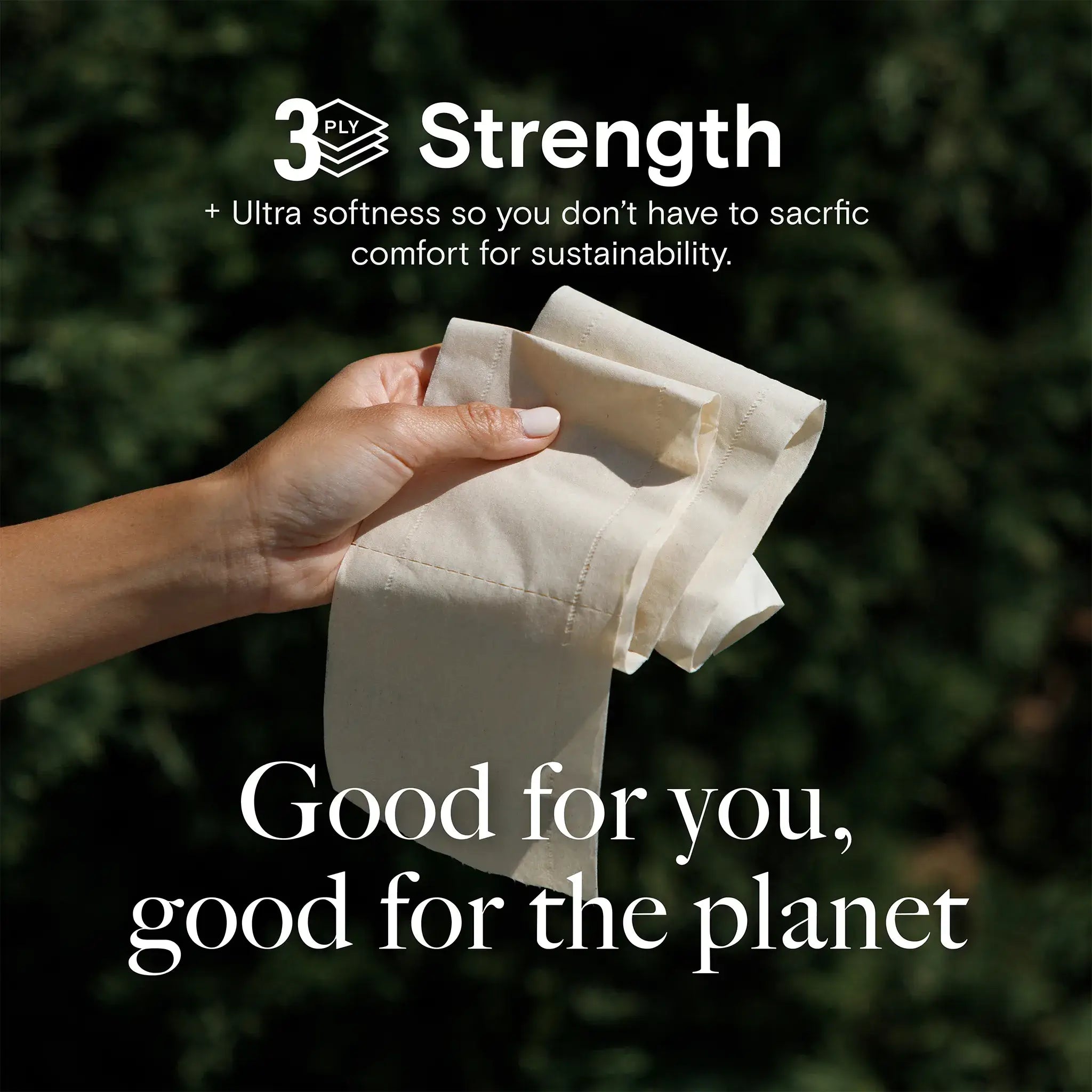
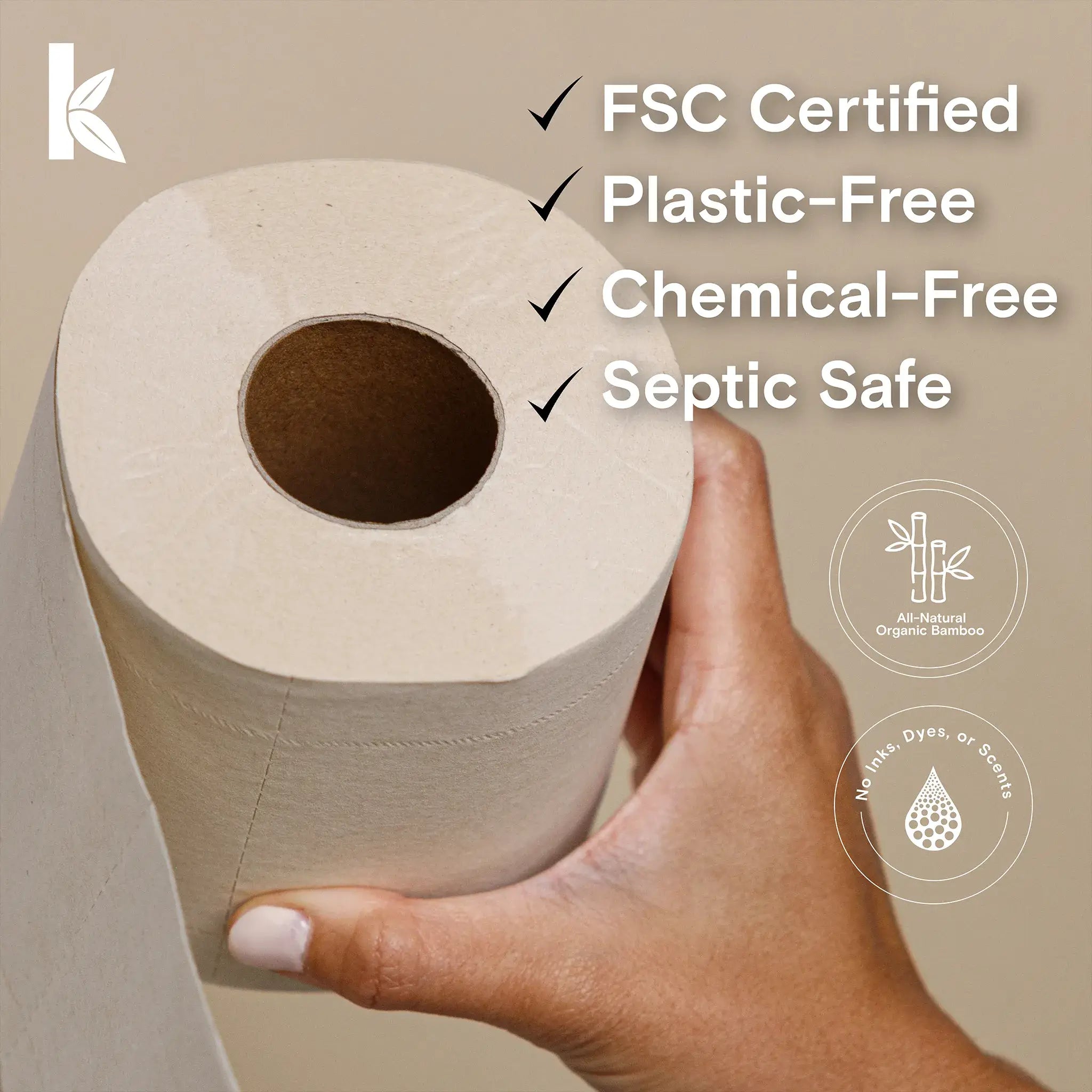


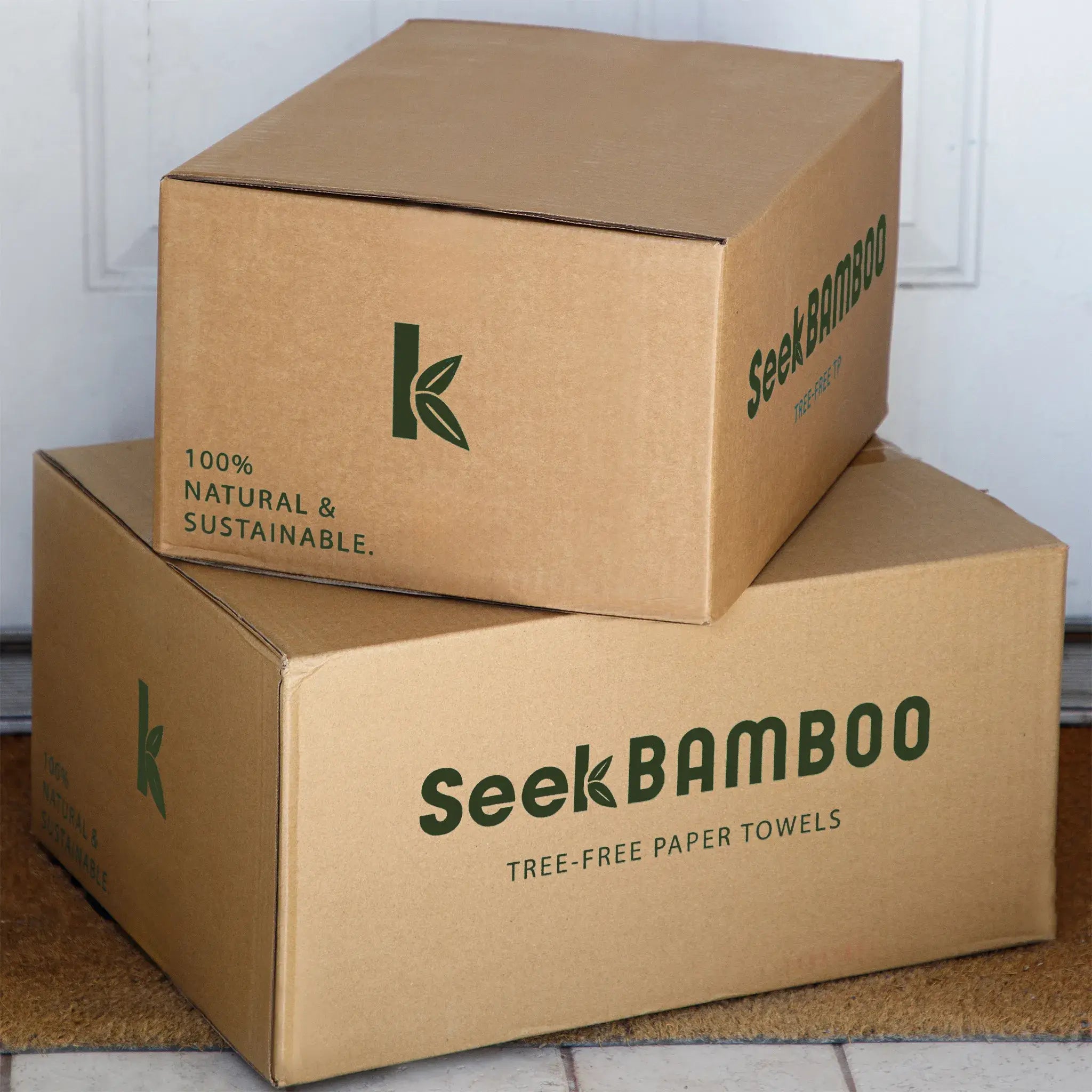
Ingredients to Avoid in Toilet Paper
For those with sensitive skin, choosing the right toilet paper goes beyond just texture and softness. The ingredients used in the production of toilet paper can significantly impact skin health, particularly for individuals who are prone to irritation. Many conventional toilet papers contain chemicals, fragrances, and dyes that can trigger adverse reactions. In this section, we will explore the ingredients to avoid and provide tips on how to identify harmful additives on product labels.
Chemicals, Fragrances, and Dyes That Can Irritate Sensitive Skin
- Bleach and Chlorine: One of the most common chemicals used in toilet paper production is chlorine bleach, which is utilized to whiten and brighten the paper. Chlorine and its derivatives, such as chlorine dioxide, can leave behind trace amounts of dioxins, which are harmful to both the environment and the skin. For those with sensitive skin, even small amounts of these chemicals can cause irritation, dryness, and allergic reactions.
- Fragrances: Many brands add fragrances to their toilet paper to provide a pleasant scent. However, these fragrances are often composed of a mix of chemicals that can be particularly harsh on sensitive skin. Artificial fragrances can disrupt the skin’s natural barrier, leading to redness, itching, and inflammation. Fragrances are a common cause of allergic contact dermatitis, a skin reaction that can range from mild irritation to more severe rashes.
- Dyes and Inks: Dyes are sometimes used to add patterns or colors to toilet paper. These synthetic dyes, especially those derived from petroleum, can be harsh on the skin. The chemicals in dyes can cause irritation and allergic reactions, particularly in individuals with sensitive skin. Additionally, any decorative inks used for embossing or printing on the paper can also contain irritants.
- Formaldehyde: While less common, some toilet papers may contain formaldehyde, a chemical used to increase the strength and softness of paper products. Formaldehyde is a known irritant and allergen that can cause redness, itching, and even more severe skin reactions. Prolonged exposure to formaldehyde can also lead to dermatitis and other skin sensitivities.
- Preservatives: Preservatives are sometimes added to toilet paper to prevent the growth of mold or bacteria. These can include parabens, methylisothiazolinone, and other chemical compounds that may cause allergic reactions or skin irritation. Sensitive skin types are more likely to react negatively to these additives.
Features of Toilet Paper for Sensitive Skin
Choosing the right toilet paper for sensitive skin involves more than just avoiding certain ingredients; it also means looking for specific features that ensure comfort and safety. For those with sensitive skin, the ideal toilet paper is designed to minimize irritation and provide a gentle, soothing experience. In this section, we’ll explore the key features to look for, such as hypoallergenic properties, fragrance-free and dye-free options, and the benefits of using soft, ultra-gentle materials like bamboo or recycled fibers.
Hypoallergenic Properties
Toilet paper with hypoallergenic properties is specifically designed to minimize the risk of allergic reactions. These products are made without common allergens, such as fragrances, dyes, and harsh chemicals, making them ideal for individuals with sensitive skin or allergies. Hypoallergenic toilet paper undergoes rigorous testing to ensure it doesn’t cause irritation, redness, or itching, even for those with the most reactive skin types.
The term "hypoallergenic" indicates that a product is less likely to cause an allergic reaction, but it's not a regulated term. Therefore, it's essential to look for reputable brands that provide transparency about their testing processes and ingredient lists. When selecting a hypoallergenic toilet paper, look for products that are certified by dermatologists or have been tested by independent laboratories to confirm their suitability for sensitive skin.
Fragrance-Free and Dye-Free Options
One of the most important features of toilet paper for sensitive skin is that it is both fragrance-free and dye-free. Fragrances and dyes are common culprits of skin irritation and allergic reactions. Even small amounts of these additives can disrupt the skin's natural barrier, especially in individuals with sensitive skin, leading to discomfort, itching, and redness.
Fragrance-free toilet paper does not contain any added scents, which can be particularly beneficial for people with allergies or sensitivities to strong odors or chemicals. Similarly, dye-free toilet paper avoids the use of synthetic dyes, which can be abrasive to the skin. Instead, these products maintain their natural color, often appearing white or light brown, depending on the materials used. By choosing fragrance-free and dye-free options, you reduce the risk of exposing your skin to potential irritants, ensuring a gentler, more comfortable experience.
Benefits of Using Soft, Ultra-Gentle Materials (Like Bamboo or Recycled Fibers)
The material used in toilet paper can make a significant difference in comfort, especially for those with sensitive skin. Soft, ultra-gentle materials like bamboo and recycled fibers are ideal choices because they are naturally soothing and less likely to cause irritation.
- Bamboo: Bamboo toilet paper is an excellent choice for sensitive skin due to its natural softness and hypoallergenic properties. Bamboo fibers are smooth and gentle, reducing friction against the skin and minimizing the risk of irritation. Additionally, bamboo is naturally antimicrobial, which helps to prevent bacterial growth and maintain hygiene. Bamboo toilet paper is also eco-friendly, as bamboo is a rapidly renewable resource that requires less water and no pesticides to grow.
- Recycled Fibers: Recycled toilet paper is another great option for those with sensitive skin. Made from recycled paper products, it is free from harsh chemicals and additives commonly found in conventional toilet paper. Recycled fibers are typically softer and more pliable, providing a gentle touch that is less likely to cause irritation. Additionally, choosing recycled toilet paper supports sustainability efforts by reducing waste and conserving natural resources.
- Unbleached and Chemical-Free Options: Unbleached toilet paper is made without the use of chlorine or other bleaching agents, which can be harsh on sensitive skin. By choosing unbleached options, you reduce the risk of exposing your skin to irritants and chemicals. Additionally, chemical-free toilet papers are manufactured without harsh preservatives or additives, providing a safer option for those with delicate skin.
By selecting toilet paper with these specific features—hypoallergenic properties, fragrance-free and dye-free options, and soft, ultra-gentle materials like bamboo or recycled fibers—you can ensure a more comfortable and soothing experience for sensitive skin. In the following sections, we’ll review some of the top recommendations for toilet paper designed for sensitive skin and offer tips on how to choose the best product for your needs.
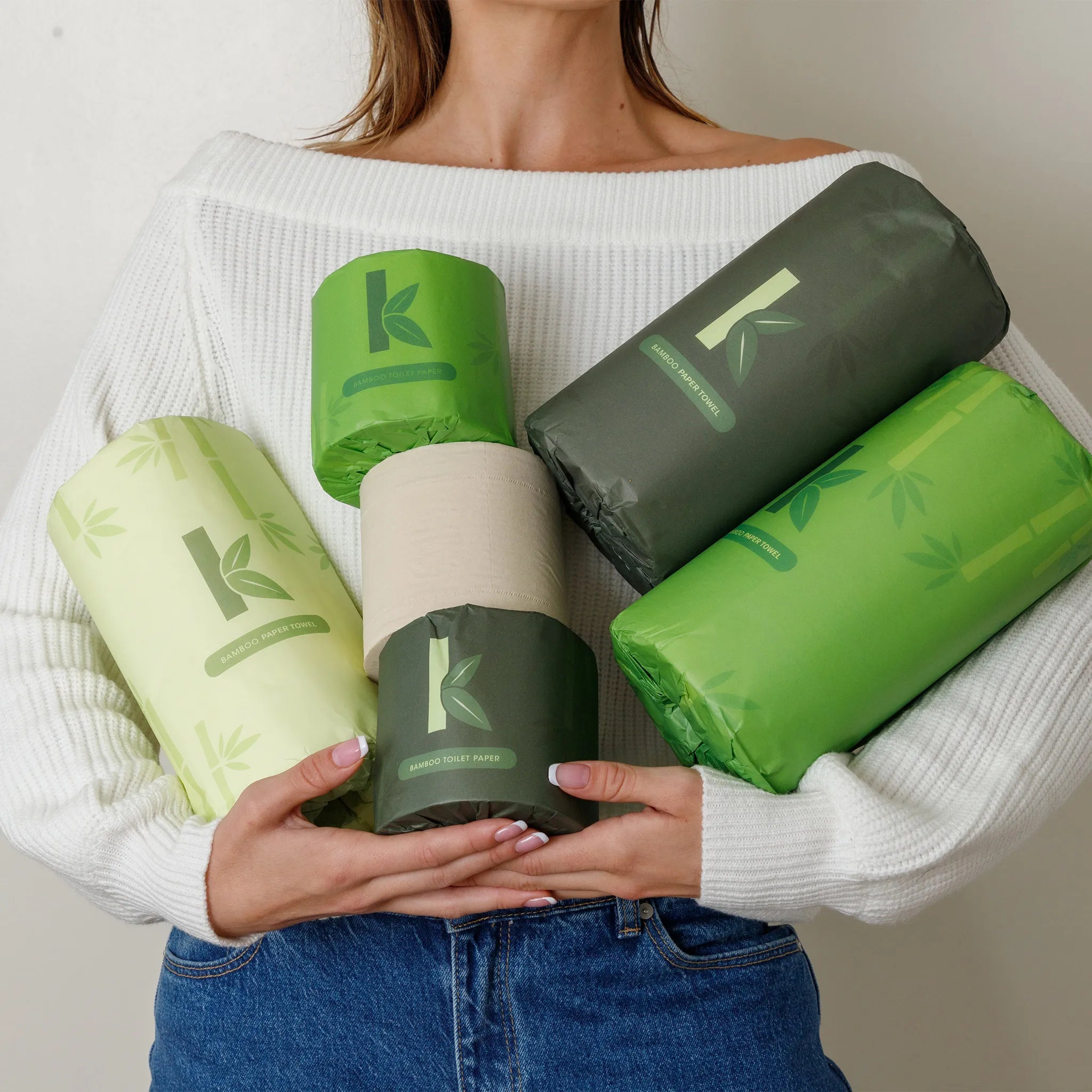

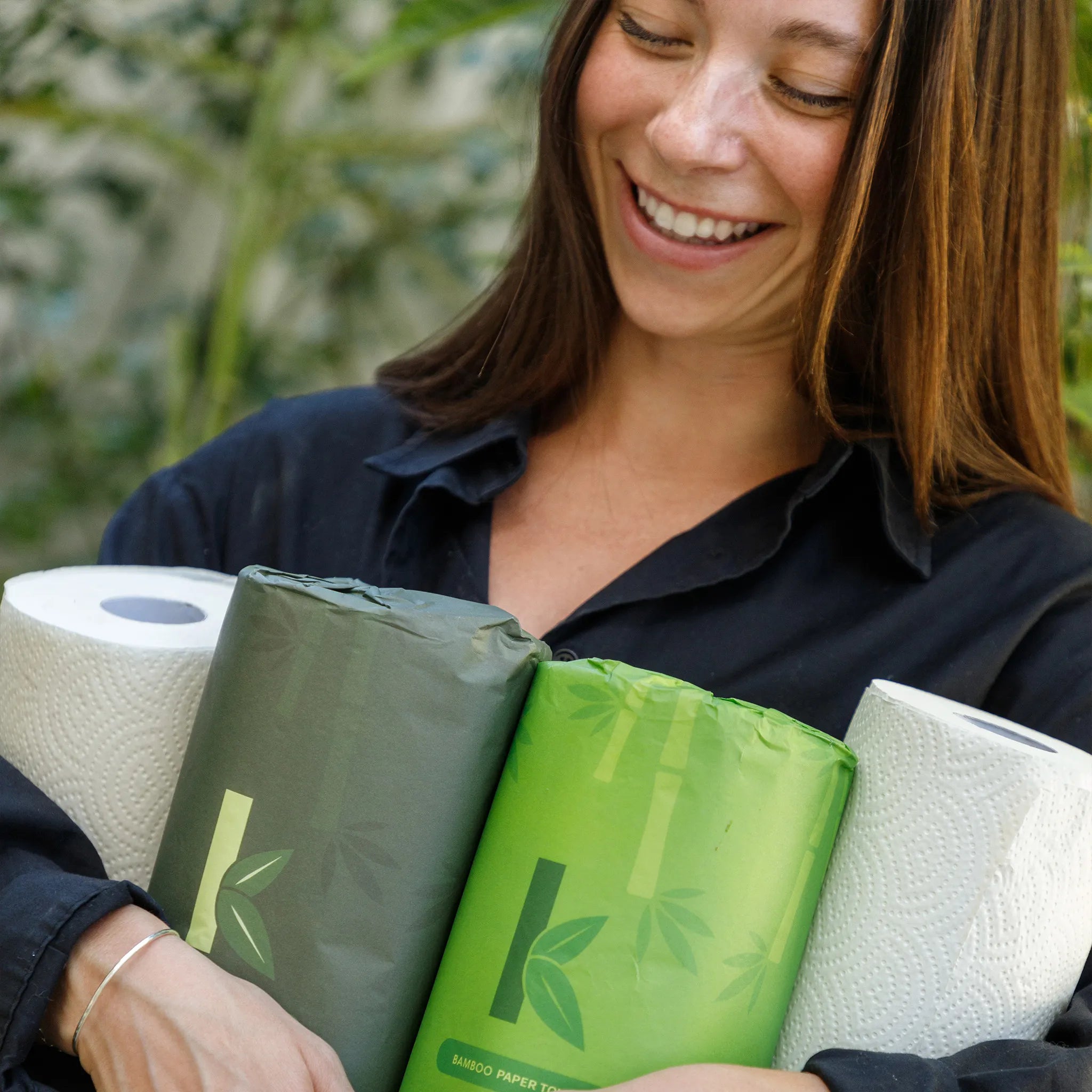



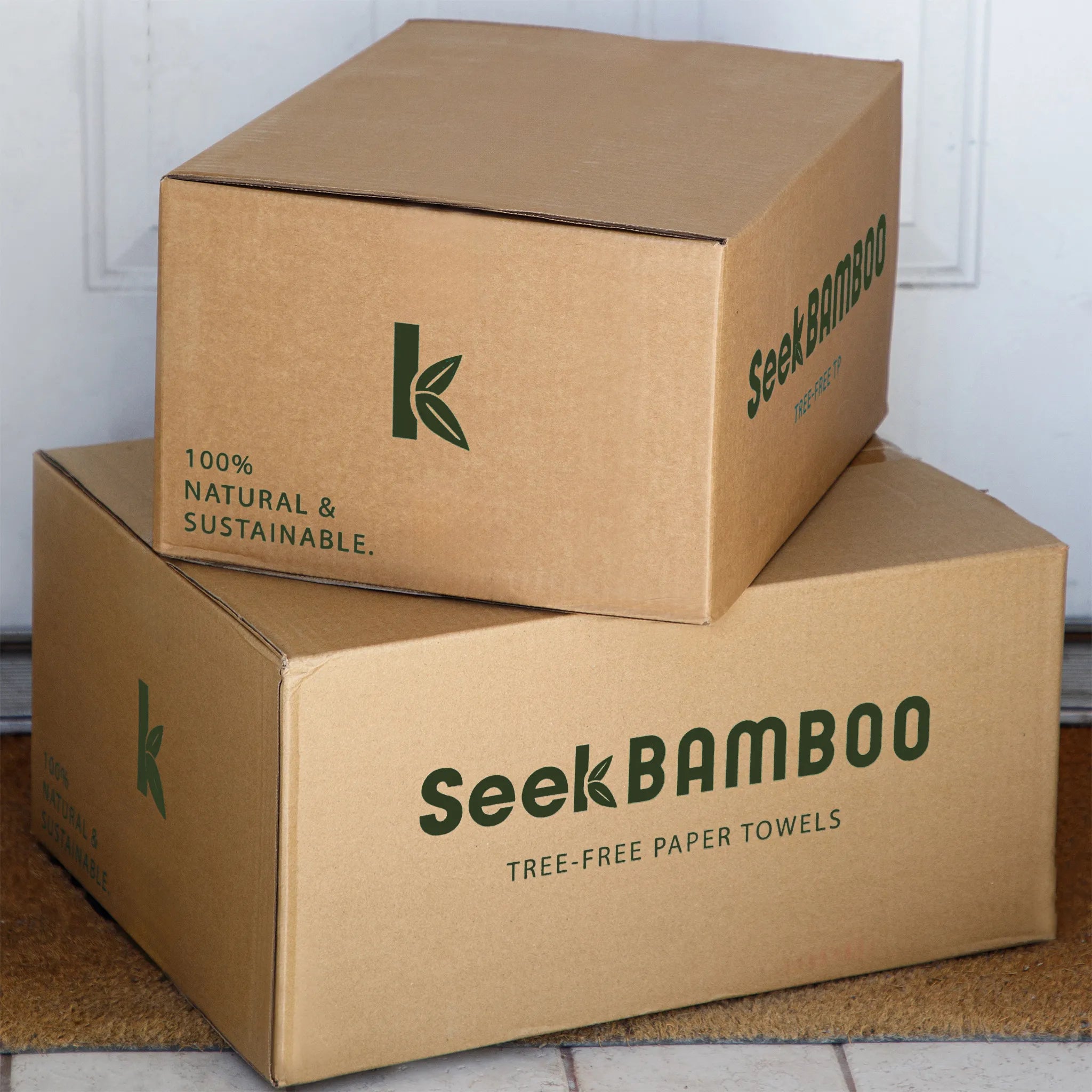
Benefits of Bamboo Toilet Paper for Sensitive Skin
When it comes to choosing toilet paper for sensitive skin, bamboo has emerged as a standout option. Not only is bamboo toilet paper incredibly soft and gentle, making it ideal for those with sensitive skin, but it also offers a host of environmental benefits that make it a sustainable choice. In this section, we’ll explore why bamboo is such an excellent option for sensitive skin and highlight its eco-friendly advantages.
Why Bamboo is an Excellent Choice for Sensitive Skin
- Naturally Soft and Gentle: Bamboo fibers are naturally smooth and round, lacking the rough edges found in many other fibers. This inherent softness makes bamboo toilet paper exceptionally gentle on the skin, reducing the risk of irritation, chafing, and discomfort. For those with sensitive skin, the softness of bamboo toilet paper provides a much-needed relief from the abrasive texture of traditional paper products, ensuring a more comfortable experience with every use.
- Hypoallergenic Properties: Bamboo toilet paper is naturally hypoallergenic, meaning it is less likely to cause allergic reactions or skin irritations. This is especially important for individuals with sensitive skin, who may react to the chemicals, dyes, and fragrances found in conventional toilet paper. Bamboo fibers do not require the same harsh processing as other materials, resulting in a purer, safer product for those with skin sensitivities. Additionally, bamboo contains natural antimicrobial properties, which can help reduce the risk of bacterial growth and skin infections, further enhancing its suitability for sensitive skin.
- Chemical-Free Production: The manufacturing process of bamboo toilet paper typically avoids the use of harsh chemicals, such as chlorine bleach, which is commonly used to whiten conventional toilet paper. This lack of chemical processing means that bamboo toilet paper is free from irritants that could potentially harm sensitive skin. For individuals who are prone to allergies or skin reactions, the chemical-free nature of bamboo toilet paper offers a safer and more skin-friendly alternative.
- Moisture Retention: Bamboo fibers have excellent moisture retention properties, which help to keep the skin hydrated and prevent dryness. Unlike other types of toilet paper that may strip moisture from the skin, bamboo toilet paper maintains a balance, leaving the skin feeling soft and smooth. This is particularly beneficial for those with sensitive skin, as dryness can exacerbate irritation and lead to further discomfort.
Highlighting the Environmental Benefits of Bamboo Toilet Paper
In addition to its benefits for sensitive skin, bamboo toilet paper is also an eco-friendly choice, offering several environmental advantages over traditional wood-based toilet paper:
- Sustainability and Renewability: Bamboo is one of the fastest-growing plants in the world, capable of reaching maturity in just 3 to 5 years compared to the decades it takes for hardwood trees to mature. This rapid growth rate makes bamboo a highly renewable resource, ensuring a steady and sustainable supply of raw material for toilet paper production. Unlike traditional wood-based products, which contribute to deforestation and habitat loss, bamboo harvesting has a much lower environmental impact. Additionally, bamboo plants regenerate naturally after harvesting, without the need for replanting, making it an even more sustainable choice.
Low Resource - Requirements: Bamboo requires significantly less water to grow than traditional tree species used for paper production. It also thrives without the need for pesticides, herbicides, or fertilizers, reducing the chemical load on the environment and preventing soil and water contamination. This low resource requirement makes bamboo an environmentally friendly option, as it minimizes the depletion of natural resources and reduces the overall carbon footprint of toilet paper production.
- Carbon Sequestration: Bamboo is highly efficient at capturing carbon dioxide from the atmosphere, helping to mitigate the effects of climate change. In fact, bamboo forests can absorb more carbon dioxide and release more oxygen than an equivalent area of hardwood forest, making bamboo a valuable resource in the fight against global warming. By choosing bamboo toilet paper, consumers support products that contribute to a healthier planet.
- Reduced Waste and Biodegradability: Bamboo toilet paper is fully biodegradable and breaks down more quickly than conventional toilet paper, reducing waste and the burden on landfills. This biodegradable nature ensures that bamboo toilet paper has a minimal environmental footprint, contributing to a more sustainable waste management process. Additionally, many bamboo toilet paper products come in plastic-free or recyclable packaging, further reducing their impact on the environment.
By choosing bamboo toilet paper, individuals with sensitive skin can enjoy a gentle, hypoallergenic product that provides comfort and care, all while making a positive contribution to environmental sustainability. In the next section, we will offer our top recommendations for sensitive skin-friendly toilet paper and guide you on selecting the best option for your needs.
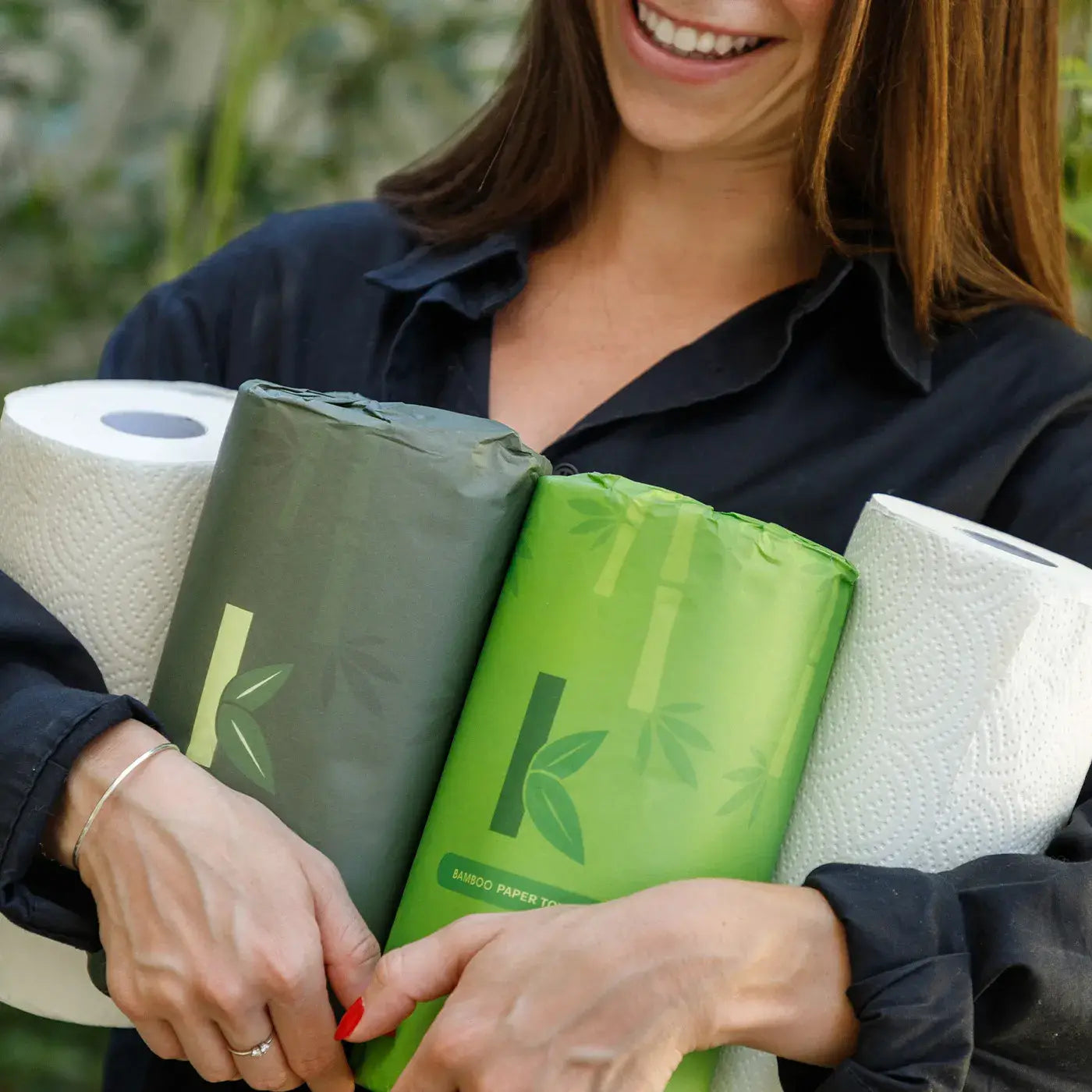
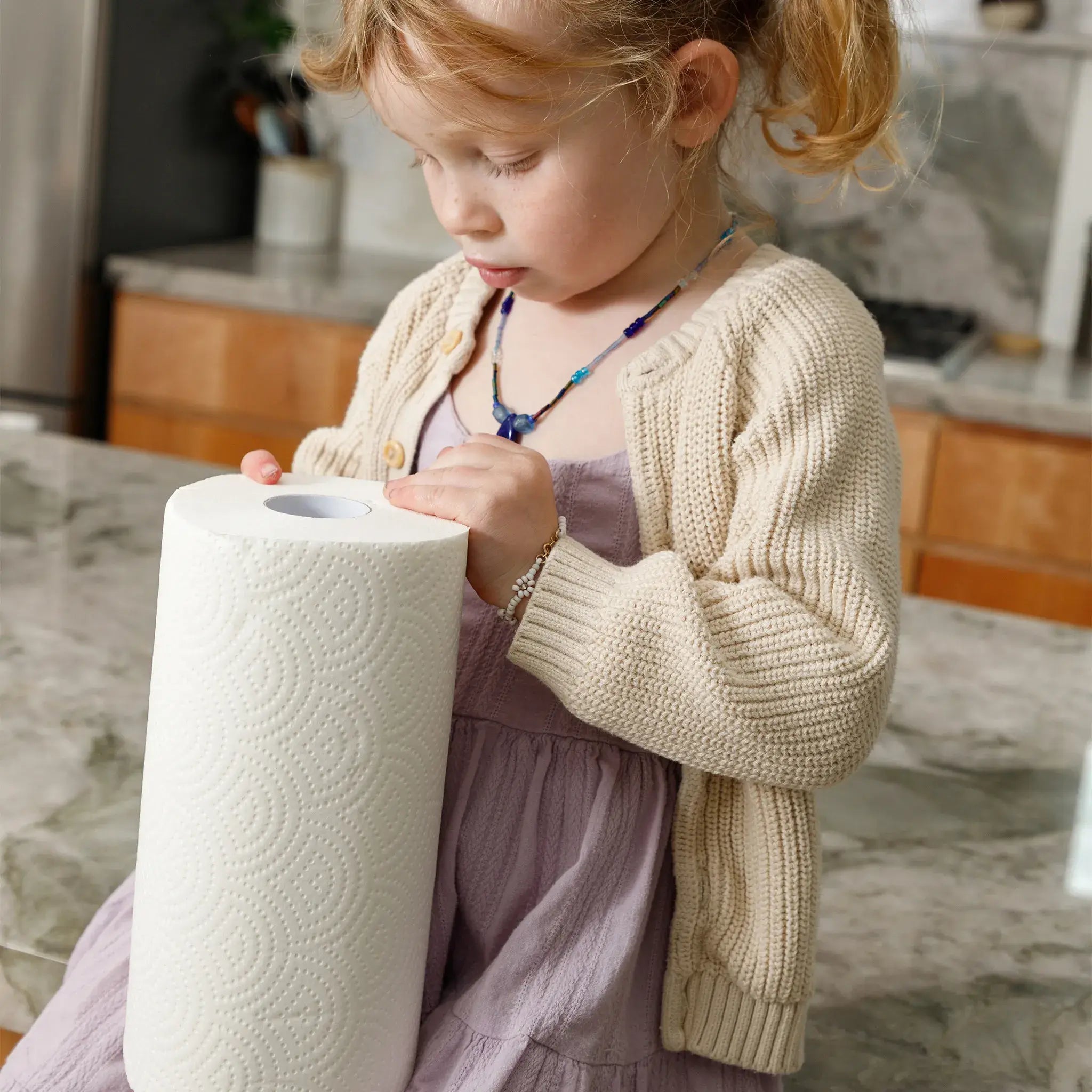
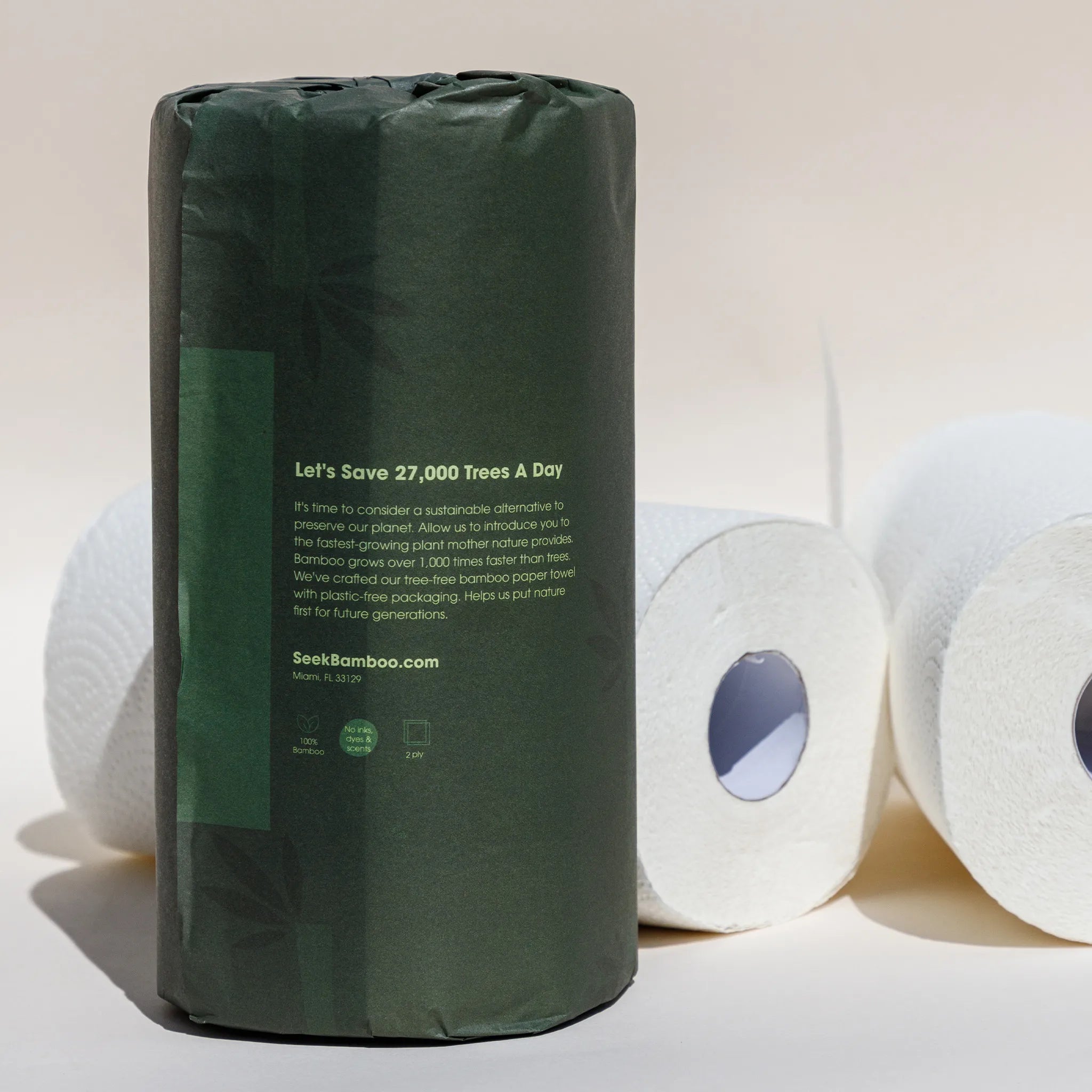
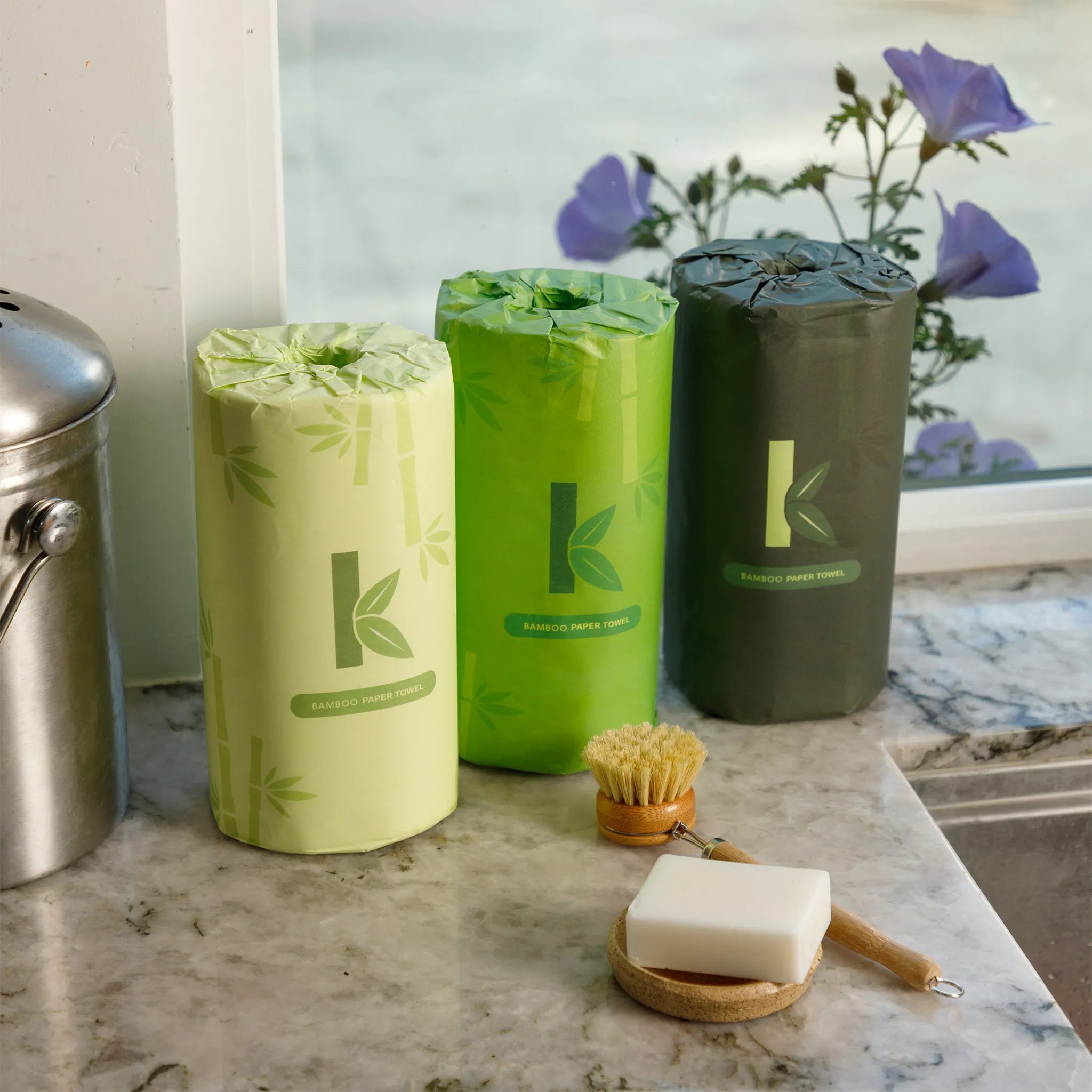

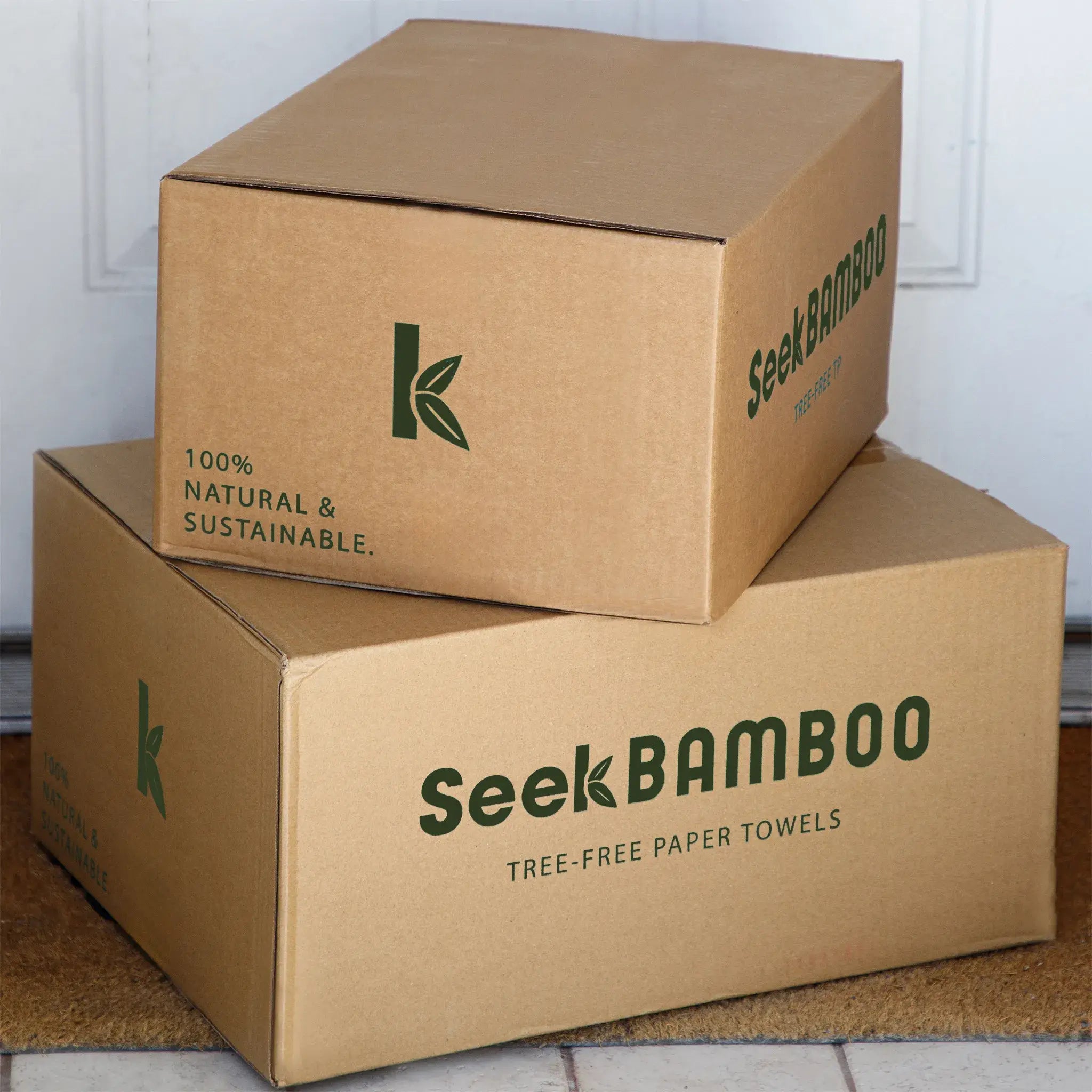

Choose Bamboo For Sensitive Skin
Choosing the right toilet paper is more than just a matter of comfort; it can significantly impact the health and well-being of those with sensitive skin. Throughout this blog, we've explored the various aspects of what makes toilet paper suitable for sensitive skin, from understanding the nature of sensitive skin and its common reactions to regular toilet paper, to identifying harmful ingredients that should be avoided.
We’ve discussed the importance of selecting toilet paper with hypoallergenic properties, free from fragrances, dyes, and harsh chemicals. These features help reduce the risk of skin irritation and provide a gentler, more soothing experience. Additionally, opting for toilet paper made from soft, ultra-gentle materials like bamboo or recycled fibers can further enhance comfort and protect delicate skin.
Bamboo toilet paper stands out as an excellent choice for sensitive skin, offering natural softness, hypoallergenic properties, and a chemical-free production process that minimizes the risk of irritation. Beyond its benefits for sensitive skin, bamboo toilet paper also boasts significant environmental advantages, such as sustainability, low resource requirements, carbon sequestration, and biodegradability, making it a responsible choice for eco-conscious consumers.
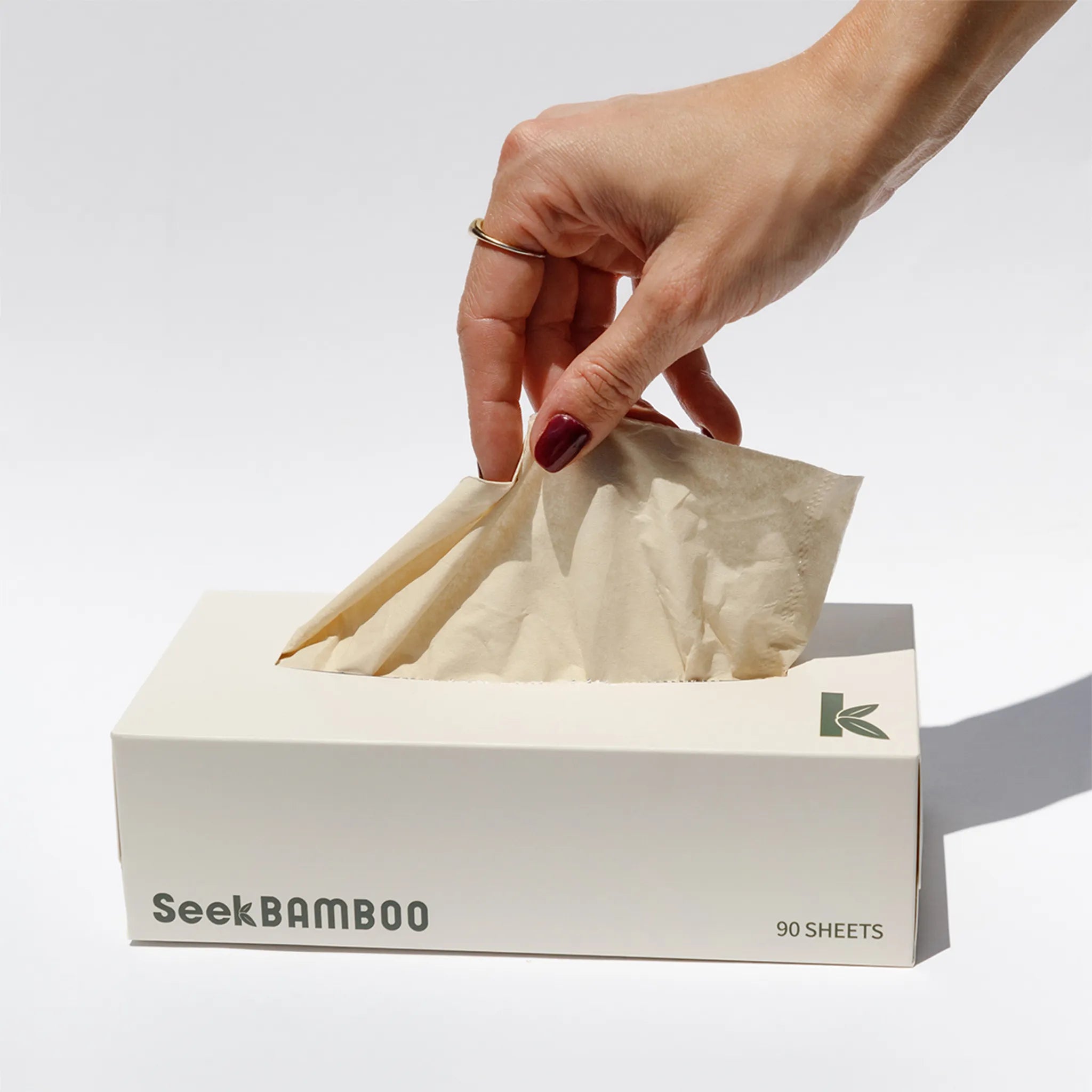

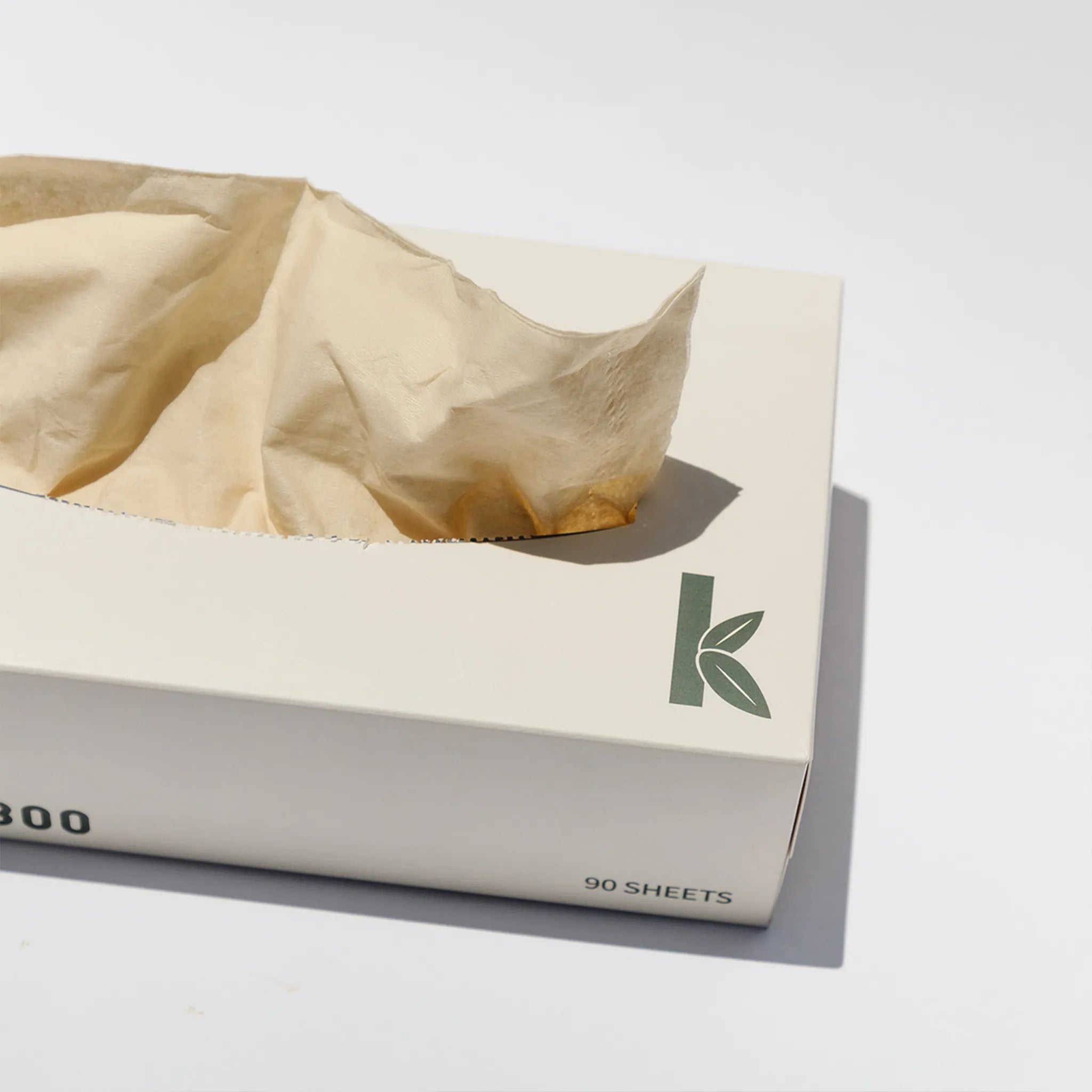
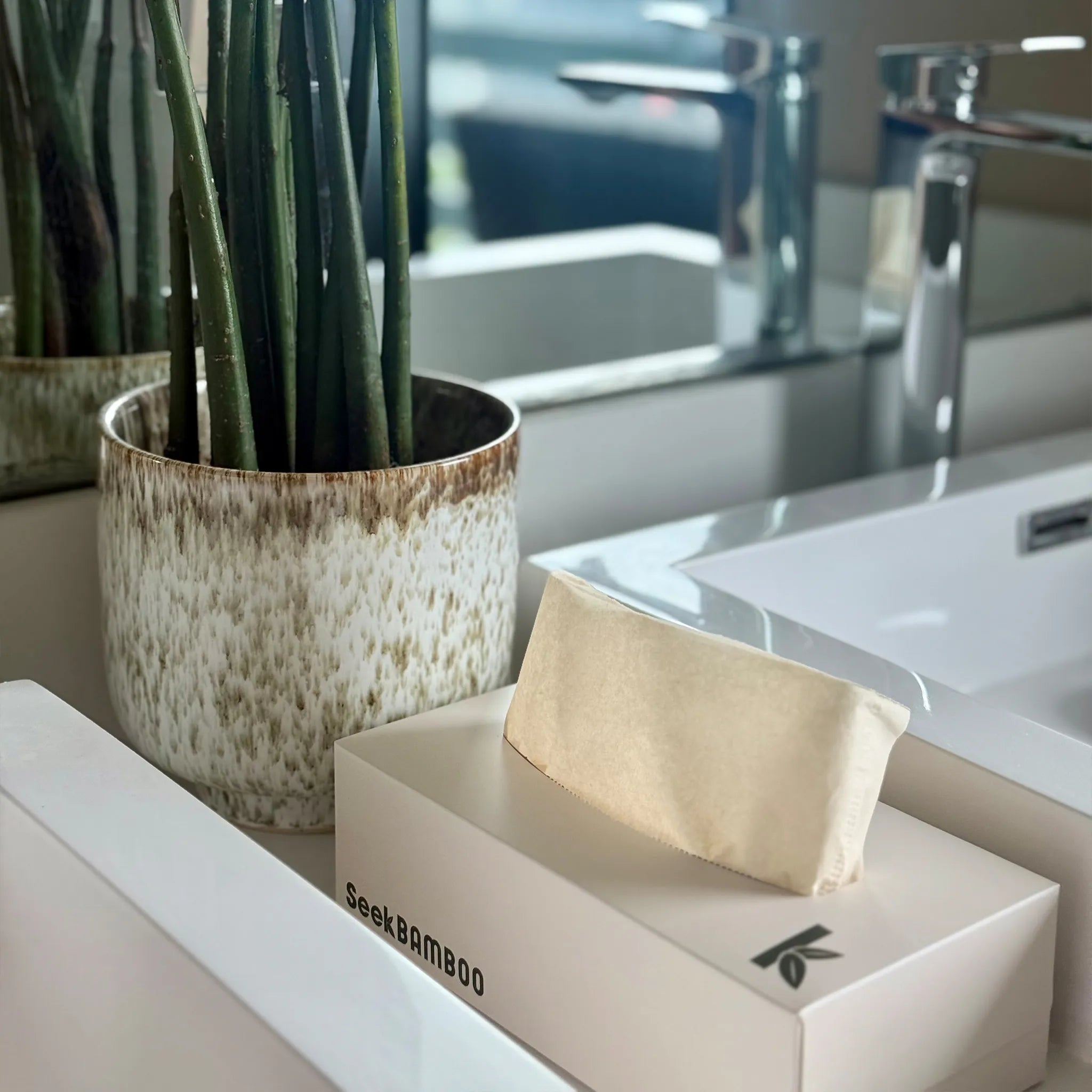
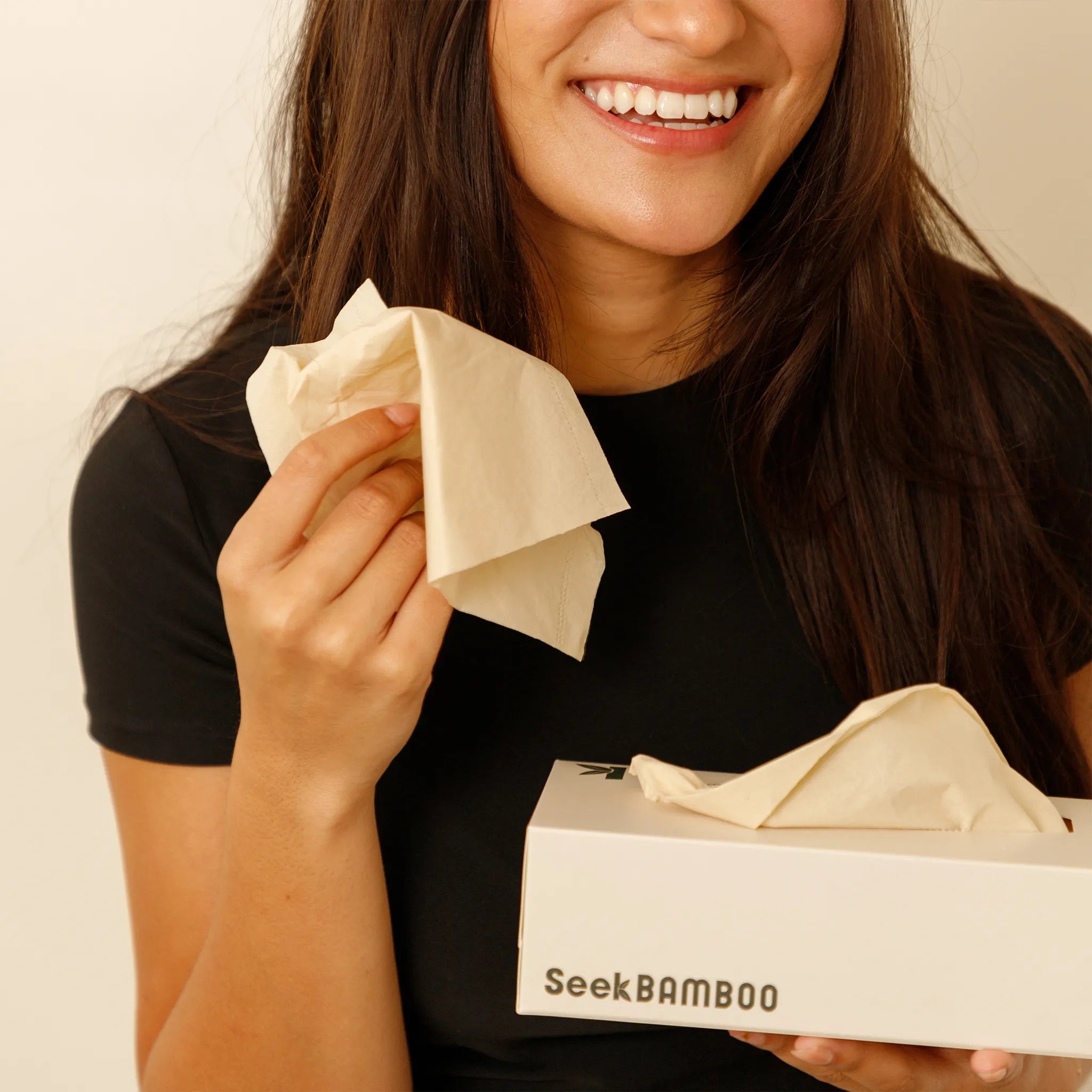
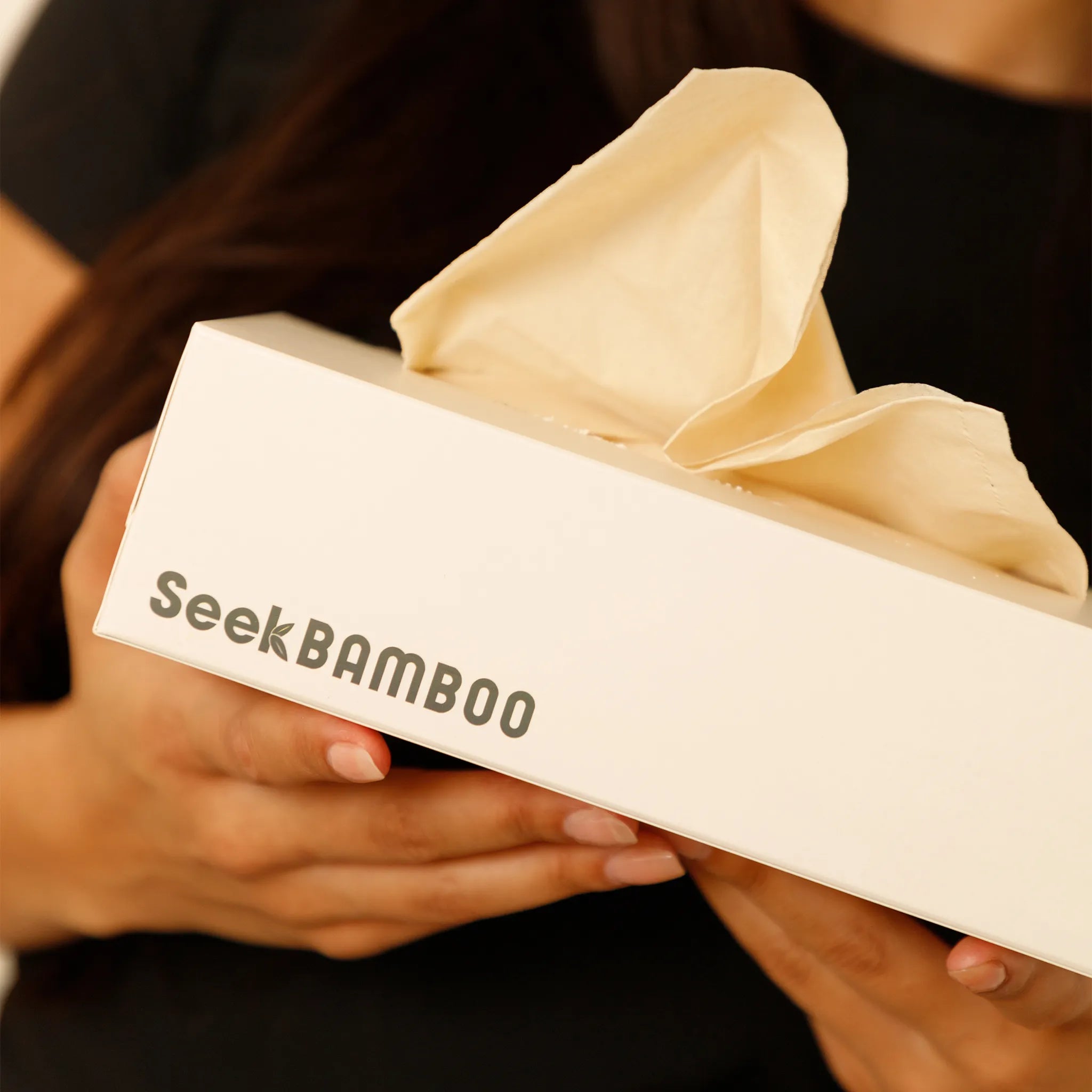
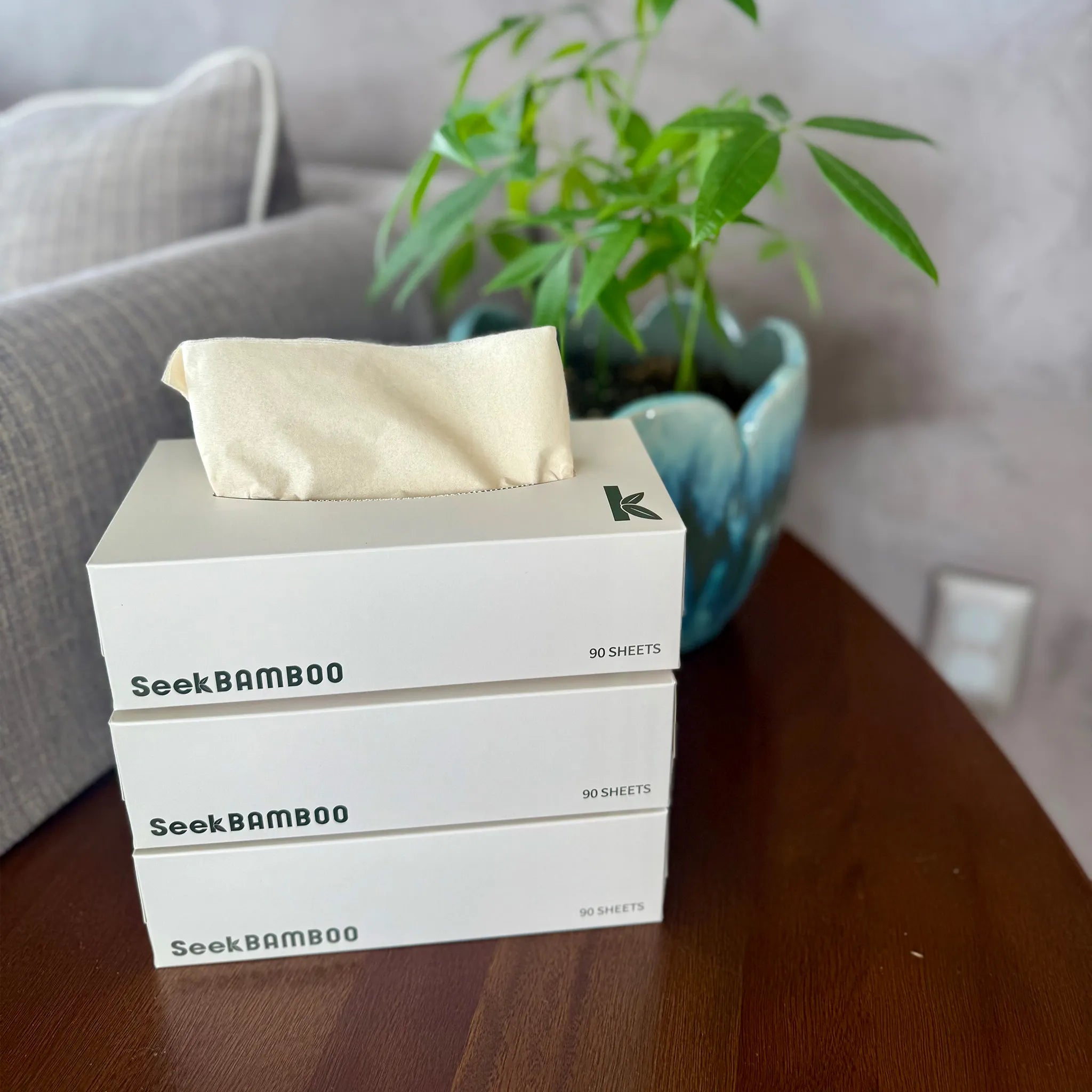
By understanding these key considerations and exploring our top recommendations for sensitive skin-friendly toilet paper, you are now better equipped to make informed decisions that prioritize both skin health and environmental sustainability. Whether you are dealing with sensitive skin yourself or looking to provide the best options for your household, choosing the right toilet paper can make all the difference.
Make the switch today and experience the comfort and care of toilet paper designed specifically for sensitive skin. Your skin will thank you, and so will the planet.
Sensitive Skin Toilet Paper FAQs
Questions About The Best Toilet Paper For Sensitive Skin
What is the best toilet paper for sensitive skin?
Yes, it is possible to be allergic to toilet paper, especially if it contains harsh chemicals, fragrances, or dyes. These additives can cause skin irritation, itching, redness, and even more severe reactions like contact dermatitis. If you notice any discomfort after using toilet paper, it might be a sign of an allergy.
What makes toilet paper suitable for sensitive skin?
Toilet paper suitable for sensitive skin is typically free from common irritants such as fragrances, dyes, and harsh chemicals. It often has hypoallergenic properties, meaning it is less likely to cause allergic reactions. Additionally, it is made from soft, gentle materials like bamboo or recycled fibers, which reduce friction and minimize the risk of irritation. Hypoallergenic toilet paper is also free from chlorine bleach, which can leave behind trace amounts of potentially harmful dioxins. By choosing toilet paper that meets these criteria, individuals with sensitive skin can enjoy a more comfortable and irritation-free experience.
Why should I avoid toilet paper with fragrances and dyes?
Fragrances and dyes are common additives in conventional toilet paper that can trigger skin irritation, especially for those with sensitive skin. Fragrances are often composed of synthetic chemicals that can cause allergic reactions or disrupt the skin’s natural barrier, leading to redness, itching, or inflammation. Dyes used to color or add patterns to toilet paper can also contain harsh chemicals that may irritate the skin. By avoiding toilet paper with these additives, you reduce the risk of exposing your skin to potential irritants and ensure a gentler, more soothing experience.
Is bamboo toilet paper better for sensitive skin than regular toilet paper?
Yes, bamboo toilet paper is generally better for sensitive skin than regular toilet paper. Bamboo fibers are naturally soft and hypoallergenic, making them ideal for minimizing irritation and providing comfort. Bamboo toilet paper is also typically free from fragrances, dyes, and harsh chemicals, such as chlorine bleach, that can irritate sensitive skin. Moreover, bamboo has natural antimicrobial properties that help reduce the risk of bacterial growth and skin infections. Its smooth fibers reduce friction, making it an excellent choice for those with sensitive skin or skin conditions like eczema or dermatitis.
What are the environmental benefits of using bamboo toilet paper?
Bamboo toilet paper is highly sustainable and environmentally friendly. Bamboo is one of the fastest-growing plants in the world and can reach maturity in just a few years, unlike traditional trees used for paper, which can take decades to mature. This rapid growth makes bamboo a renewable resource with a lower environmental impact. Additionally, bamboo requires significantly less water to grow and does not need pesticides, herbicides, or fertilizers, reducing the chemical load on the environment. Bamboo also has high carbon sequestration capabilities, helping mitigate climate change by capturing more carbon dioxide and releasing more oxygen than traditional trees. Bamboo toilet paper is biodegradable and often comes in plastic-free packaging, making it a greener choice.
How can I tell if a toilet paper is hypoallergenic?
To determine if toilet paper is hypoallergenic, look for products specifically labeled as "hypoallergenic," "dermatologist tested," or "safe for sensitive skin." These labels indicate that the product has been tested to reduce the likelihood of allergic reactions. Additionally, check the ingredient list or packaging for any mention of being free from fragrances, dyes, chlorine, and other common irritants.
Can using the wrong toilet paper cause skin conditions or worsen existing ones?
Yes, using the wrong toilet paper can cause skin irritation or exacerbate existing skin conditions, especially in individuals with sensitive skin. Toilet paper containing fragrances, dyes, or harsh chemicals like chlorine bleach can irritate the skin, leading to redness, itching, dryness, or even allergic reactions such as contact dermatitis. For those with pre-existing skin conditions, such as eczema, psoriasis, or dermatitis, using unsuitable toilet paper can trigger flare-ups or worsen symptoms. Choosing toilet paper designed for sensitive skin, which is free from irritants and made from soft, hypoallergenic materials, can help prevent these issues and promote better skin health.
Is unbleached toilet paper a good option for sensitive skin?
Yes, unbleached toilet paper is an excellent option for sensitive skin. Unlike conventional toilet paper, which is often bleached with chlorine to achieve a white color, unbleached toilet paper retains its natural color and avoids the use of potentially irritating chemicals. This makes unbleached toilet paper gentler on sensitive skin, reducing the risk of irritation, dryness, or allergic reactions. Unbleached options are also more environmentally friendly, as they avoid the pollution associated with the chlorine bleaching process.
Are there any alternatives to toilet paper for people with extremely sensitive skin?
For individuals with extremely sensitive skin, alternatives to traditional toilet paper include using bidets or reusable cloth wipes. A bidet uses water to clean the skin, which can be gentler and more effective than wiping with toilet paper. This method reduces friction and the risk of irritation or allergic reactions. Reusable cloth wipes, made from soft, natural materials like cotton or bamboo, can also be a good alternative. These wipes are often free from chemicals and dyes and can be washed and reused, offering both comfort and sustainability. However, it's important to wash reusable wipes thoroughly to maintain hygiene.
How do I choose the best toilet paper for my sensitive skin?
When choosing the best toilet paper for sensitive skin, consider the following factors:
- Look for hypoallergenic products specifically designed for sensitive skin.
- Choose toilet paper that is free from fragrances, dyes, and harsh chemicals.
- Opt for products made from soft, gentle materials like bamboo or recycled fibers.
- Check for certifications and labels that indicate the product is environmentally friendly and safe for sensitive skin.
- Read customer reviews to gain insights into the product’s performance and suitability for sensitive skin.
By considering these factors, you can find a toilet paper that meets your specific needs and provides a comfortable, irritation-free experience.


